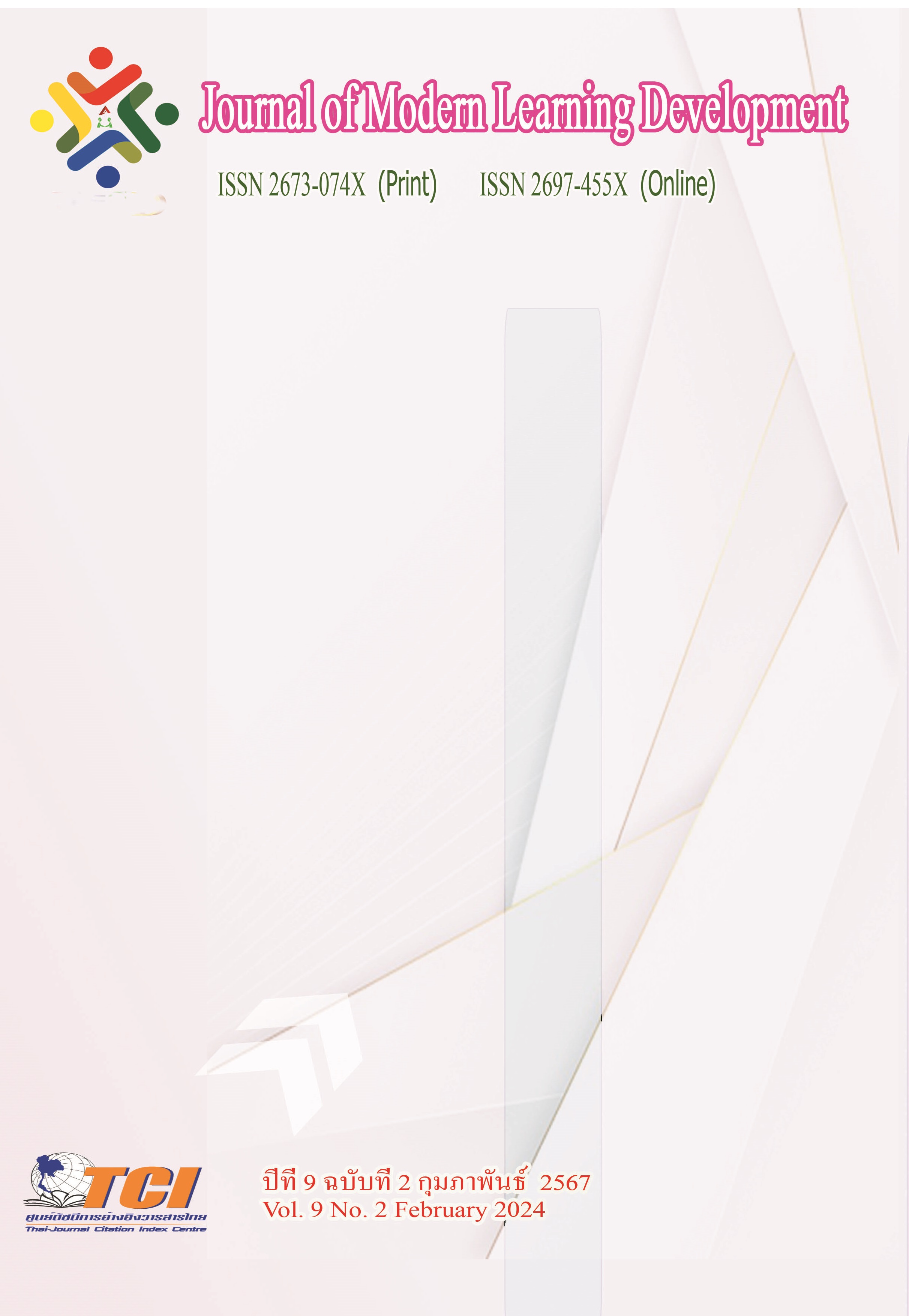Organizational Commitment and Innovative Working Behavior in Public Organizations
Main Article Content
Abstract
Organizational commitment is important for innovative work behavior. Many organizations have tried to promote personnel’s organizational commitment by providing support, encouragement in working, creating work experiences that make personnel feel part thereof and a major force in determining the direction of the organizations so as to push for and encourage personnel’s innovative work behavior, including attempts to find causal factors affecting organizational commitment for use to improve and develop guidelines on building personnel’s organizational commitment.
Therefore, the objectives of this research were to study 1) the level of organizational commitment and innovative work behavior in public organizations 2) the causal relationship between job characteristics, organizational structure and work experience with organizational commitment. This research was quantitative research. The representative sample of 300 persons included civil servants at operational level and above in the Office of the Permanent Secretary for economic affairs in 5 ministries, consisting of 1) the Office of the Permanent Secretary, Ministry of Transport, 31 persons 2) Office of the Permanent Secretary, Ministry of Finance, 19 persons 3) Office of the Permanent Secretary, Ministry of Commerce, 114 persons 4) Office of the Permanent Secretary, Ministry of Agriculture and Cooperatives, 99 persons and 5) Office of the Permanent Secretary, Ministry of Energy, 37 persons by stratified multi-stage sampling and simple random sampling. The tool of this research was a closed-ended questionnaire. Data were analyzed with SPSS program by simple regression analysis, multiple regression analysis.
The research findings were as follows.
The level of organizational commitment and innovative work behavior of personnel in government organizations of all 5 ministries as a whole was at high level.
The results of the relationship test showed that job characteristics, organizational structure, work experience had a positive effect on organizational commitment. Also, organizational commitment had a positive effect on innovative work behavior.
Article Details
References
Abuzaid, A. (2016). Testing the impact of strategic leadership on organizational ambidexterity: A field study on the Jordanian chemical manufacturing companies. International Journal of Business and Management. 11 (5), 5-10.
Adalgisa Battistelli. (2019). Information sharing and innovative work behavior: The role of work-based learning, challenging tasks, and organizational commitment. Human Resource Development Quarterly. 30 (3), 361-381
Alaaldin Alrowwad. (2020). The Role of Organizational Commitment in Enhancing Organizational Effectiveness. Education Excellence and Innovation Management through Vision 2020.
Albury, D. (2005). Fostering innovation in public services. Public Management and Money. 25 (1), 51-56
Bahrami, A., & Sarihi Asfestani, R. (2015). The Relationship between Organizational Trust, Organizational Commitment and Perceived Organizational Support at the Ministry of Economic Affairs and Finance. Management Studies in Development and Evolution. 24 (87), 1-16.
Butts, M.M.; Vandenberg, R J.; Dejoy, D.M.; Schaffer, B.S. & Wilson, M.G. (2009). Individual reactions to high involvement work processes: investigating the role of empowerment and perceived organizational support. Journal of Occupational Health Psychology. 14 (2), 122-136,
Costello, A. B. & Osbome, J. (2005), "Best practices in exploratory factor analysis: four recommendations for getting the most from your analysis", Practical Assessment, Research, and Evaluation. 10 (7), 1-9)
De Jong, J. & Den Hartog, D. (2010). Measuring innovative work behavior. Creativity and Innovation Management. 19, 23–36.
Evangelia Katsikea; Marios Theodosiou; Nick Perdikis; John Kehagias (2011). The effects of organizational structure and job characteristics on export sales managers’ job satisfaction and organizational commitment. 46 (2), 221–233.
Hair, Jr. J. F.; Black, B. B.; Anderson, R. and Tatham, R. L. (2006). Multivariate Data Analysis.
(6th ed.). New Jersey: Pearson Education.
Janssen, O. (2000). Job demands, perceptions of effort-reward fairness and innovative behaviour. Journal of Occupational and Organizational Psychology. 73, 287-302.
Janssen, O. (2004). How fairness perceptions make innovative behavior more or less stressful. Journal of Organizational Behavior. 25 (2), 201 – 215.
Kleysen, R. F., & Street, C. T. (2001) "Toward a multi‐dimensional measure of individual innovative behavior". Journal of Intellectual Capital. 2 (3), 284-296.
Siregar, Z. M. E.; Ahman S. E. and Senen, S. H. (2019). Factors Influencing Innovative Work Behavior: An Individual Factors Perspective. International Journal of Scientific & Technology Research. 8 (09), 324-326.
Slatten, T. & Mehmetoglu, M. (2011). Antecedents and effects of engaged frontline employees: A study from the hospitality industry. Managing Service Quality: An International Journal. 21 (1), 88-107.
Sundaray, B. K. (2011). Employee Engagement: A Driver of Organizational Effectiveness. Euro-pean Journal of Business and Management. 3 (8), 53-59.


